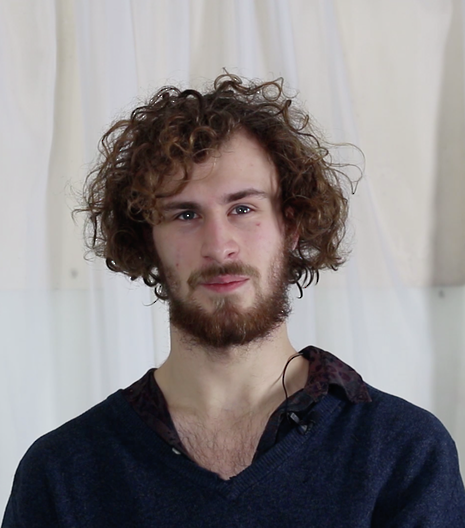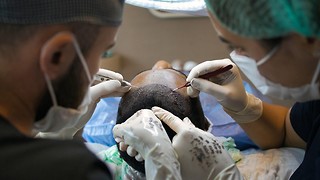Vulture Introducing: Johnny King
Keir Baker and Charlie Thorpe talk to Johnny King about his Cambridge film-making career and his most recent project, Chicane
How did you get involved with film?
It was basically procrastination during Easter term of my first year. A friend of mine and I just decided to make a film. I think it started when he asked another friend of ours: “If Johnny and I were to make a film, would you film it for us?” And then, when she said yes – ultimately for reasons I highly respect (i.e. everything would have been terrible), she didn’t – we thought: ‘Let’s make a film.’
We made a surreal – I hesitate to say drama – but it has to be something other than surreal I suppose. It didn’t make any sense – it was awful – but it was fun and I decided to do something better afterwards.

Why do you prefer being behind the camera rather than in front?
Well, first of all, I’m not a particularly strong actor. I think I have a lot more to say as a filmmaker than as an actor. When I think of a role I’d like to play, I can always think of someone I’d rather play it – who can do it better – whereas I think I am better placed to bring my scripts and ideas to life from behind [the camera].
What is Chicane about?
Chicane is about half an hour long. It’s about two characters mainly: one is a washed-up comedian holding onto the last dregs of her aspirations. She’s used to having been told ‘no’ for various more innovative sketch ideas and has a quite a low-key gig that is basically her life. And it’s about her friend who has a more surreal and liberally absurd quest for backstreet truth and meaning.
It’s set back to front. There is a plot, but it’s more about taking a chunk out of those two characters’ lives and saying: ‘This is what happens within it - this could be changed in another part of their lives. It’s not that special in itself.’ I set it back to front just because a lot of it explains these relations of cause and effect, and of sequential events.
How do you reconcile your filmmaking with your Cambridge workload?
My philosophy for both work and other things is that if you’ve decided you’re going to do something and set yourself firmly on that, it will get done, which goes for work: if I’ve decided I will do my work, I can just do it at the last minute and will have the impetus to see it off.
I stretched that a lot in second year, and I don’t regret it. Next year is going to be interesting, but just being prepared to sacrifice both parts of work and parts of non-work to be prepared to get things done on both fronts is the way for me.
What does the future hold for your filmmaking?
Put it this way, I don’t want to stop making films anytime. I don’t think I can make a career out of it. I’d probably like to.
I’m just going to carry on making films and do whatever else: go for a Plan A career. If I feel confident enough, if I feel in a stable enough place with film, I might try to take it further. But at the moment, it’s something I do and take seriously but it’s not a long-term arch, career-wise that is.
What advice do you have for new filmmakers?
Just do it. Make as many mistakes as you like; be prepared to learn from all of them. One of the hardest and most important things I learnt was to be my worst critic or, if I didn’t feel like I could do that, to find someone else who could do it for me
 Features / Meet the Cambridge students whose names live up to their degree9 September 2025
Features / Meet the Cambridge students whose names live up to their degree9 September 2025 News / Student group condemns Biomedical Campus for ‘endorsing pseudoscience’10 September 2025
News / Student group condemns Biomedical Campus for ‘endorsing pseudoscience’10 September 2025 News / Tompkins Table 2025: Trinity widens gap on Christ’s19 August 2025
News / Tompkins Table 2025: Trinity widens gap on Christ’s19 August 2025 News / New left-wing student society claims Corbyn support11 September 2025
News / New left-wing student society claims Corbyn support11 September 2025 Science / Who gets to stay cool in Cambridge?7 September 2025
Science / Who gets to stay cool in Cambridge?7 September 2025









